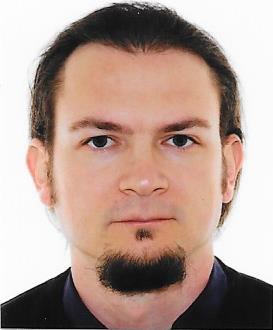Studying at the University of Verona
Here you can find information on the organisational aspects of the Programme, lecture timetables, learning activities and useful contact details for your time at the University, from enrolment to graduation.
Academic calendar
The academic calendar shows the deadlines and scheduled events that are relevant to students, teaching and technical-administrative staff of the University. Public holidays and University closures are also indicated. The academic year normally begins on 1 October each year and ends on 30 September of the following year.
Course calendar
The Academic Calendar sets out the degree programme lecture and exam timetables, as well as the relevant university closure dates..
| Period | From | To |
|---|---|---|
| Sem. 1A | Sep 21, 2020 | Oct 31, 2020 |
| Sem. 1B | Nov 9, 2020 | Jan 9, 2021 |
| Sem. 2A | Feb 15, 2021 | Apr 1, 2021 |
| Sem. 2B | Apr 14, 2021 | May 29, 2021 |
| Session | From | To |
|---|---|---|
| Sessione d'esame invernale | Jan 14, 2021 | Feb 13, 2021 |
| Sessione d'esame estiva | Jun 7, 2021 | Jul 24, 2021 |
| Sessione d'esame autunnale | Aug 23, 2021 | Sep 18, 2021 |
| Session | From | To |
|---|---|---|
| Sessione di laurea estiva | Jul 5, 2021 | Jul 10, 2021 |
| Sessione di laurea autunnale | Nov 8, 2021 | Nov 13, 2021 |
| Sessione di laurea invernale | Mar 28, 2022 | Apr 1, 2022 |
| Period | From | To |
|---|---|---|
| Festa di Ognissanti | Nov 1, 2020 | Nov 1, 2020 |
| Festa dell'Immacolata | Dec 8, 2020 | Dec 8, 2020 |
| Vacanze di Natale | Dec 24, 2020 | Jan 6, 2021 |
| Vacanze di Pasqua | Apr 2, 2021 | Apr 6, 2021 |
| Festa della liberazione | Apr 25, 2021 | Apr 25, 2021 |
| Festa del lavoro | May 1, 2021 | May 1, 2021 |
| Festa del Santo Patrono | May 21, 2021 | May 21, 2021 |
| Festa della Repubblica | Jun 2, 2021 | Jun 2, 2021 |
| Vacanze estive | Aug 9, 2021 | Aug 15, 2021 |
Exam calendar
Exam dates and rounds are managed by the relevant Humanistic Studies Teaching and Student Services Unit.
To view all the exam sessions available, please use the Exam dashboard on ESSE3.
If you forgot your login details or have problems logging in, please contact the relevant IT HelpDesk, or check the login details recovery web page.
Should you have any doubts or questions, please check the Enrollment FAQs
Academic staff
 carlo.callegaro@univr.it
carlo.callegaro@univr.it
Study Plan
The Study Plan includes all modules, teaching and learning activities that each student will need to undertake during their time at the University.
Please select your Study Plan based on your enrollment year.
1° Year
| Modules | Credits | TAF | SSD |
|---|
2° Year activated in the A.Y. 2021/2022
| Modules | Credits | TAF | SSD |
|---|
1 module between the following| Modules | Credits | TAF | SSD |
|---|
| Modules | Credits | TAF | SSD |
|---|
1 module between the following| Modules | Credits | TAF | SSD |
|---|
Legend | Type of training activity (TTA)
TAF (Type of Educational Activity) All courses and activities are classified into different types of educational activities, indicated by a letter.
Group processes and diversity management (2021/2022)
Teaching code
4S007375
Teacher
Coordinator
Credits
9
Language
Italian
Scientific Disciplinary Sector (SSD)
M-PSI/05 - SOCIAL PSYCHOLOGY
Period
Sem. 1A, Sem. 1B
Learning outcomes
This course focuses on group processes in organizational contexts. The course will examine group processes and intergroup relations, with a special focus on group formation and cohesion, inclusion and identity, decision making, productivity in groups, intergroup relations and conflict, effects of majority and minority group belonging, and diversity management. The course aims to provide students with skills, such as critical reflection, analysis, and interpretation of group dynamics, especially those occurring within organizational contexts. Students will learn how to observe groups and to understand their dynamics; they will have a firm grasp of the main theoretical and empirical approaches to the study of groups, and will learn how to manage relationships between minority and majority group members. By the end of the course students will be able to: - develop a sound knowledge of group processes in organizational and social settings; - develop management skills for complex organizational processes with a specific focus on diversity management; - plan and evaluate interventions aimed at developing harmonious relationships within organizazions.
Program
The course will be held in Italian and will cover the following topics:
-group formation
-social categorization and social identity
-cohesion and inclusion
-social influence and conformity
-obedience and power
-leadership
-group decision making
-group productivity
-intergroup relations and conflict
-majority-minority relations within organizations
-stereotype threat in the workplace
-diversity in social and organizational contexts
-diversity management
-diversity training
The topics will be addressed both through frontal teaching and in-class assignments aimed at developing students’ skills of group observation and analysis, understanding of group processes, management of diversity-related processes.
Readings:
1. Forsyth, D. R. (2019). Group dynamics (7th Ed.). Cengage Learning. Capitoli: 1,2,3,6,7,8,9,10,12,13.
2. Ellemers, N. & Haslam, S. A. (2019). La teoria dell’identità sociale, in Van Lange, P. A. M., Kruglanski, A. W., & Higgins, E. T., Psicologia sociale: Teorie sui processi psicologici, intraindividuali, interpersonali e intergruppi (pp.187-202). Traduzione italiana a cura di Pagliaro, S., Sacchi, S., & Vezzali, L. Milano: Edra.
3. Turner, J. C. & Reynolds, K. J. (2019). La teoria della categorizzazione di sé, in Van Lange, P. A. M., Kruglanski, A. W., & Higgins, E. T., Psicologia sociale: Teorie sui processi psicologici, intraindividuali, interpersonali e intergruppi (pp. 203-216). Traduzione italiana a cura di Pagliaro, S., Sacchi, S., & Vezzali, L. Milano: Edra.
4. Sidanius, J. & Pratto, F. (2019). La teoria della dominanza sociale, in Van Lange, P. A. M., Kruglanski, A. W., & Higgins, E. T., Psicologia sociale: Teorie sui processi psicologici, intraindividuali, interpersonali e intergruppi (pp. 203-216). Traduzione italiana a cura di Pagliaro, S., Sacchi, S., & Vezzali, L. Milano: Edra.
5. John F. Dovidio , Samuel L. Gaertner & Tamar Saguy (2007) Another view of “we”: Majority and minority group perspectives on a common ingroup identity, European Review of Social Psychology, 18:1, 296-330.
6. Roberson L. & Kulik C. T. (2007). Stereotype Threat at Work. Academy of Management Perspectives, 21, 24-40.
7. Casad, B,J. & Bryant, W.J. (2016). Addressing Stereotype Threat is Critical to Diversity and Inclusion in Organizational Psychology. Front. Psychol.7:8. doi:10.3389/fpsyg.2016.00008
8. Anand, R., & Winters, M. F. (2008). A Retrospective View of Corporate Diversity Training from 1964 to the Present. Academy of Management Learning & Education, 7, 356-372
9. O’Donovan, D. (2017). Inclusion: Diversity Management 2.0. In C. Machado, & J. P. Davim, Managing Organizational Diversity: Trends and Challenges in Management and Engineering. Springer.
Chapters and journal articles will be available on the moodle platform. Non attending students who might find it difficult to study in English are invited use power points on moodle as supplementary materials (not substitutes).
ATTENTION!
The lessons will be held in presence (upon reservation of the student). Lessons will be recorded and available on moodle by two to three days.
Bibliography
Examination Methods
For attending students, the exam will consist of a work-project (optional) and an oral examination; for non attending students, the exam will consist of an oral examination. The content and modes of completion of the work-project will be agreed upon by the lecturer and (attending) students. In the oral examination, (attending/non attending) students will be asked questions about 3-4 topics included in the syllabus, that will be selected by the lecturer. Students are required to know the relevant theoretical constructs, as well as how to interpret social and organizational behaviour according to the theories and concepts included in the syllabus. The oral examination will test students' capacities of understanding, analysis and communication.
Indications about the exam being in presence or via zoom will be provided in due course.
Type D and Type F activities
Modules not yet included
Career prospects
Module/Programme news
News for students
There you will find information, resources and services useful during your time at the University (Student’s exam record, your study plan on ESSE3, Distance Learning courses, university email account, office forms, administrative procedures, etc.). You can log into MyUnivr with your GIA login details: only in this way will you be able to receive notification of all the notices from your teachers and your secretariat via email and soon also via the Univr app.
Graduation
Documents
| Title | Info File |
|---|---|
|
|
pdf, it, 99 KB, 13/10/23 |
|
|
pdf, it, 101 KB, 10/04/24 |
List of theses and work experience proposals
Student mentoring
Gestione carriere
Linguistic training CLA
Practical information for students
Documents
| Title | Info File |
|---|---|
|
|
pdf, it, 325 KB, 02/05/23 |
|
|
pdf, it, 212 KB, 02/05/23 |
|
|
pdf, it, 131 KB, 02/05/23 |
Stage e Tirocini
Lo/a studente/essa tirocinante curricolare sarà chiamato/a svolgere, presso gli Enti che lo ospitano, attività che prevedono competenze associate alla figura professionale dello Psicologo, in particolare lo Psicologo per la formazione, e nello specifico:
- attività di progettazione, realizzazione e valutazione dell’efficacia di interventi di percorsi formativi, nonché attività volte alla facilitazione dell'apprendimento nel ciclo di vita, in particolare in contesti organizzativi;
- attività che prevedano l’analisi delle relazioni interpersonali, dei contesti organizzativi e delle pratiche lavorative;
- attività che prevedano la gestione di processi organizzativi complessi, per lo sviluppo e la valorizzazione delle persone all'interno delle organizzazioni;
- attività di progettazione, realizzazione e valutazione di interventi psicologici volti all’orientamento scolastico e professionale;
- attività che prevedono l’uso di tecniche e strumenti di analisi delle situazioni e dei contesti, di raccolta di informazioni, e di interpretazione dei risultati, principalmente in relazione ai contesti organizzativi.
Tali attività si svolgono in Aziende ed Enti accreditati presso l’Ateneo. Lo/la studente/essa sarà seguito da un tutor accademico e da un tutor aziendale. Alle attività di tirocinio sono attribuiti n. 9 CFU (pari a 225 ore).
Linee Guida per lo Svolgimento dei Tirocini Curriculari
- Tutte le informazioni in merito agli stage per futuri studenti sono disponibili alla pagina Stage e tirocini.
- Tutte le informazioni in merito agli stage per studenti iscritti sono pubblicate in MyUnivr - come fare per - stage e tirocini.
- Tutte le informazioni in merito agli stage per le aziende sono disponili alla pagina Stage e tirocini per azienze.

 +39 045 802 8459
+39 045 802 8459





















